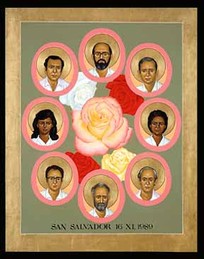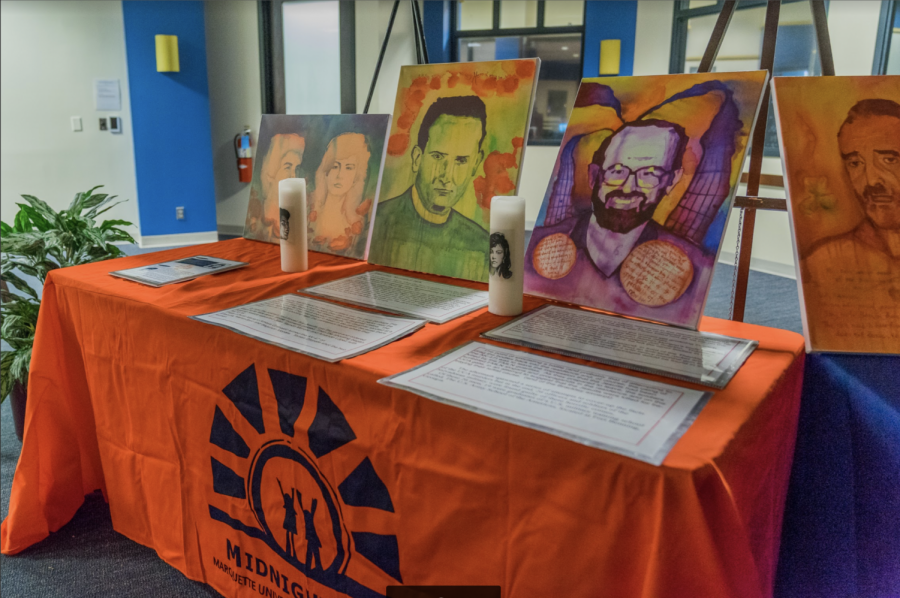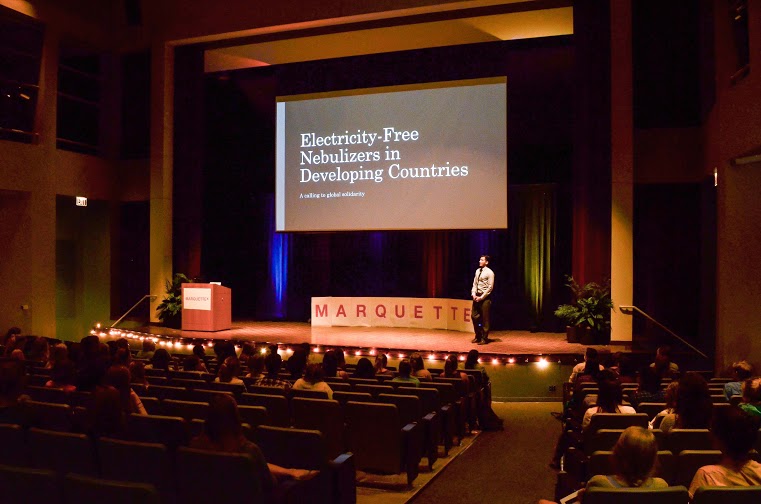Each year, the U.S. Department of State and the William J. Fulbright Foreign Scholarship Board convene to award scholarships that enable approximately 1,500 Americans to travel abroad.
This year, Chris Hallberg, a 2009 graduate of Marquette University’s College of Arts & Sciences, was one of the Fulbright scholarship recipients. Hallberg will use this opportunity to study economic development programs in northern El Salvador.
Sponsored by the U.S. government, this international educational exchange program intends to “increase mutual understanding between the people of the United States and the people of other countries,” according to the Council for International Exchange of Scholars.
Winners were selected based on their academic achievements and leadership capabilities.
“It’s a pretty competitive scholarship,” said Hallberg, a Wauwatosa, Wis. native. “I had no idea if I would win, but I knew my past experiences would help me increase my odds.”
Specifically, his sophomore year experience studying abroad in El Salvador, where he worked as a community organizer for a nongovernmental organization, inspired him to return again on the Fulbright scholarship. He cited poverty and other social issues as motivators.
“I saw patients with a number of medical problems, but their traditional medical tools were inadequate,” said Hallberg, a pre-medicine student with majors in sociology and Spanish. He said he would eventually like to practice in Latin America.
In addition to the humanitarian aspect, Hallberg said he applied for the scholarship because of the opportunity to spend an extended amount of time abroad, along with the flexibility to explore and get to know people who also received the Fulbright scholarship.
Though Hallberg is unsure of his exact agenda in Torola, one of El Salvador’s poorest municipalities, he is aware of his general mission.
“Lots of money is spent on developing programs that aren’t received well,” he said. “It is important to get feedback from the people these programs are targeting to better benefit them in the future.”
The effect of U.S. government programs, like those that target food, security, education, basic health care and nationwide government in El Salvador, will be the focus of Hallberg’s research. He will observe and gather feedback from the people of Torola to determine why some of the U.S. government’s programs succeed while others fail.
To find out, Hallberg will organize research activities. One of them involves the youth of El Salvador.
Because teens are essential to increasing job retention in El Salvador, Hallberg will be conducting research with them to answer questions like why they leave the country to find work in the United States. He will distribute digital cameras to the adolescents of Torola with a special assignment.
Each teen with a camera will be assigned to take pictures of things in their communities that are significant or meaningful to them. This way, Hallberg will gather a better understanding of how they think about their country.
“I want to find out how government programs are really affecting the community, and get (the teens’) take on the country,” Hallberg said. “I want to see if they can find success in staying there instead of finding jobs in the United States.”
Eventually, Hallberg would like for his research to help government agencies and nonprofit organizations create more successful programs. To Hallberg, the key to accomplishing this will be listening to the people.
“I will spend time in a rural area, getting to know the (people of Torola) and hearing their stories… and opinions about what can be done to improve their situation,” said Hallberg. “Are we belittling or really making a difference?”






John Taylor • Oct 13, 2009 at 8:46 am
Congratulations on the Scholarship. I was a Peace Corps Volunteer in El Salvador in 1977 & 78. I have some good contacts in El Salvador that might help Mr. Halberg with his studies. If he has an email I would like to be in touch. I will be traveling there in mid-november and could introduce him to some people.
John